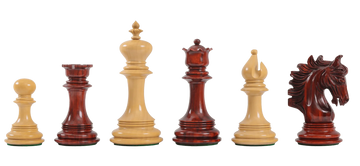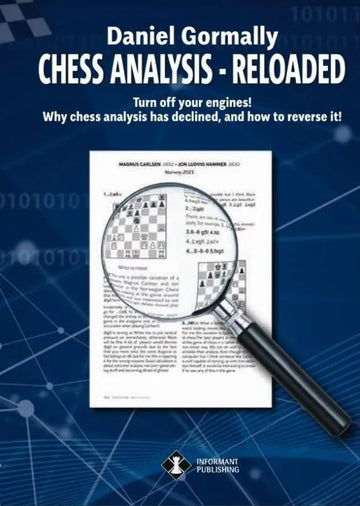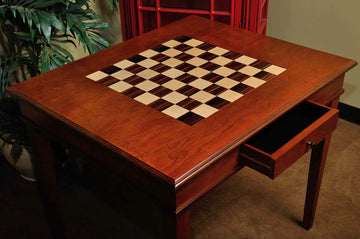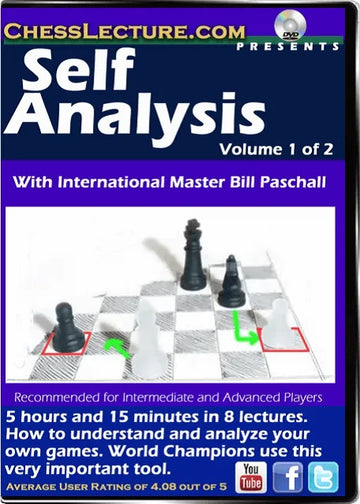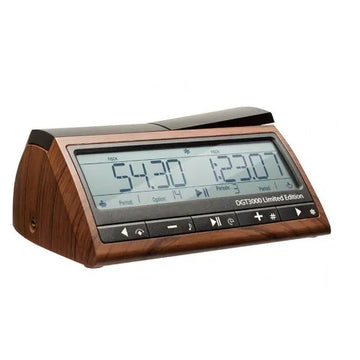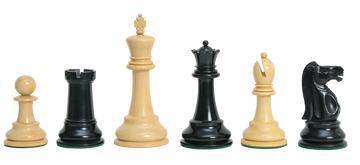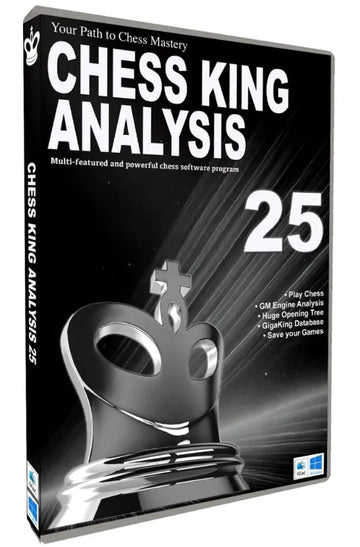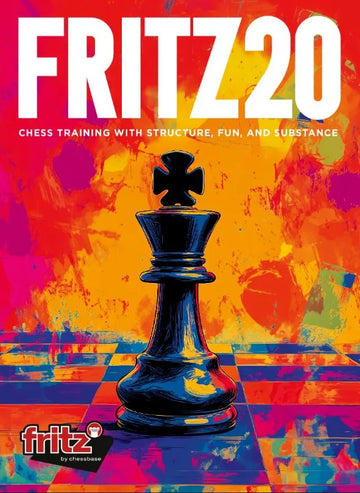Tricks to Take Your Chess Analysis to the Next Level
One reason chess players tend not to improve is that they spend much more time playing chess than they do analyzing their games. Chess analysis is a skill that every grandmaster has had to perfect. For every amateur chess player looking to improve, it is a surefire way to get to the next level.
Take a look at why we analyze chess games and how to master this important skill.

Benefits of Chess Analysis
Chess players have been analyzing their games for centuries. It is perhaps the most practical way to study chess, aside from playing. Reading theory is one thing, but examining your games in detail allows you to understand exactly what you need to optimize your chess improvement.
Key Benefits
- Identifying Mistakes and Blunders. Every chess game includes inaccuracies, mistakes, and often blunders. Analysis reveals why these occurred, the type of error they were, and when in the game they happened.
- Understanding your and your opponent’s strategy. What were you planning? What was your opponent? And how did these plans take shape? Which was more successful?
- Improve calculations. Looking at calculations in retrospect is a great way to master this key skill.
- Spotting tactics and positional opportunities. It can be tricky to understand why a seemingly safe pawn move leads to an uneven endgame, but through analysis, you can begin to understand how positional patterns work. Similarly, through analysis, you can begin to find advanced tactical combinations and defend against them.
Overall, analyzing your chess games makes you a better player.
How to Analyze A Chess Game Using an Engine
Today, you can analyze your games using chess engines. While it is possible to do it without them, chess engines provide invaluable insights and allow you to explore all of the best lines in a position.
Let’s explore different game analysis tools and how to use them.
PGN Analysis Boards
The easiest way to analyze games using an engine is through an online analysis board. These are available on Chess.com and Lichess, both of which are powered by Stockfish, one of the best available chess engines.
Every online game is recorded using Portable Game Notation (PGN). PGN files include all of a game’s moves in chess notation. This allows the game to be shared and analyzed using chess software.
The analysis board allows you to upload games, explore lines, set up any position, and explore a vast database of games and openings. It also allows you to edit, evaluate, and play out any of these positions. This means you can actively and dynamically review a game in many different ways.

In this image, you can see a position on Chess.com’s analysis board. On the left-hand side, we have the evaluation bar, which indicates whether white or black is better in a given position. On the right, we can see the various lines, each of which is marked by a score that indicates how it will improve the position.
Electronic Chess Boards
Electronic chessboards are often PGN-enabled. Using various kinds of sensors, the moves are recorded and uploaded to a device. This allows for engine-powered analysis even for over-the-board games without having to record and upload all the moves individually.

The Basics of Analysis
To start analyzing your chess game, enter the PGN into the analysis board or use an available automatic review or analysis function.
Replay the Game and Identify Key Moments.
This often includes trades, losses of material, major changes to pawn structure, pawn breaks, and transitions between different game stages (such as the opening to the middlegame, for example). Use the engine to explore different options in the positions: Check new lines in the openings. Explore tactics you missed. See how you could have made a better trade or created a stronger pawn structure.
Using the Engine to Evaluate Game Stages
Did you have a very strong opening, but lose your advantage in the middle game? Were you worse until your opponent blundered? Over time, this will give you insights into how you perform throughout the different stages.
Look for the Moves You Missed
One of the best aspects of a chess engine is its comprehensive nature. You can explore all of the good moves in a position, even the ones that are not immediately obvious.
Related: Chess Blindness
Confirm the Main Reasons the Game Was Won, Lost, or Drawn.
By exploring your strong and weak moments throughout the game, you can get a deeper sense of why the game played out the way it did. Often, there are just a few crucial moments in a chess game that decide who wins and loses. Understanding which moves were most important is a good way to work on your analysis.
Create an Alternative Game
Imagine how you could have played the game better. This doesn’t mean playing the moves that no player of your level could spot, but identifying where you, with your skillset, could have played a better game. By
Tricks to Up Your Analysis
Analyzing chess games is quite an intuitive process. As you play a game, you may naturally be wondering if you missed a key move or how you could have avoided getting into a tricky position. Checking in with this after the game is a great way to learn chess analysis.
However, serious chess players go beyond cursory analysis to create a deeper understanding of their games. Here are some tricks to turn you into a master chess analyst.
Be an Active Analyst
Turn chess analysis into an active exercise rather than a passive one. It is quite easy to feed your game into an engine and say, “Well, I made this many mistakes and blunders, so that’s why I lost.” The truth is usually more complex. Chess engines are powerful tools, but for the best analysis, you need to use your brain as well!
Don’t Just Look at the Best Engine Move
One of the temptations when analyzing your chess games is to compare your moves to the best engine suggestion. Unfortunately, this doesn’t work too well. Chess engines often make moves that humans never would. Because you can't calculate with the depth of a chess computer, trying to copy the thinking that goes into an engine move is not a helpful analysis technique.
Take a look at the top move, but make sure to explore other lines as well. Focus on the ones that make intuitive sense to you and generally follow chess principles. This kind of conscious consideration of chess moves is a more effective way to utilize analysis as a study tool.
Analyze Patterns Across Multiple Games
Everyone has strengths and weak spots in their game. Repeated analysis of various games will allow you to identify mistakes you make regularly.
For example, you may notice that in several games your opponent got an advantage after playing a specific move in the opening. In other words, your opening has a weak spot. Explore lines in this opening to defend the weakness, find one you like, and start to experiment with it in games. This kind of targeted self-improvement is an exceptional way to quickly increase your win rate.
Create Analysis-Backed Strategies
Long-term game analysis will make you better at pattern recognition, positional and tactical skill, and avoiding blunders. Moreover, you can actively use insights from your analysis to create more strategic gameplay and chess training.
Chess has an incredible number of possible positions in every game. Yet, every player has a unique style, and most play a few openings regularly. This means you will often find yourself in similar positions and situations. By studying these common patterns in your games, you can integrate them into your strategy.
One of your openings may often lead you into a specific kind of game. For example, if you play a gambit, you may be playing down a pawn. Being prepared for this will allow you to create a more accurate and effective strategy during the game.

Test Yourself
Testing your abilities as you analyze a game is another helpful skill to develop. When you identify where you made a mistake, try and make the move again and see if you can find a better option. More often than not, you only needed to spend a little more time calculating moves or scanning the position. In this way, you ensure that you use the engine as a tool while engaging your own chess brain.
Related: What Do You Want in A Chess Coach?
Chess Analysis Like a Grandmaster
While grandmasters and professional chess players make extensive use of chess engines, their analysis is much more rigorous. Even the most naturally gifted chess prodigies have to study and learn to analyze games effectively. Often, this means an extremely focused and personalized approach to post-match analysis.
Grandmasters have a mental library of openings and chess positions. For them, many lines will already be second nature. As such, they analyze and focus on the most complex, new, and interesting lines in the position. Analysis will aim to break down why that move was missed or why another one was played. What new idea or skill do they need to explore to improve on the game?
For amateur players, the lesson we can take from grandmasters is to be active and focused in our analysis. Always try to analyze one step further to see how you can become a better player.

